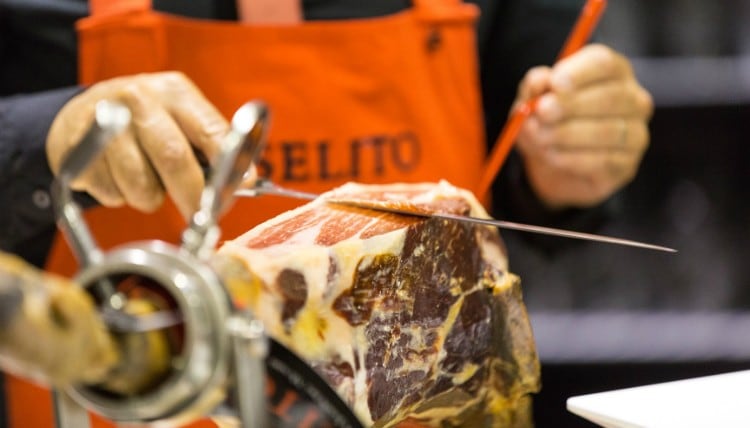A move to proximity retailing has seen more bricks-and-mortar stores with less floor space pop up in city centres and busy shopping malls across Spain.
With consumers showing a clear propensity for shopping locally, two other trends have been identified: a shift towards selling natural-looking meat products and increased digitalisation of the supply chain.
This is according to Mauricio Garcia de Quevedo, president of the Spanish Food and Drinks Industry Federation (FIAB), who spoke to this site at a press conference promoting the Barcelona trade show Alimentaria 2018. You can watch the short video with Quevedo above.
Digital revolution
Noting that the country’s food and drink sector is the “driving force” for the Spanish economy, with production value surpassing €96.4bn last year, Quevedo gave a short summary of how the country’s grocery retail industry is changing.
The first years-old trend is the shift away from big supermarkets in favour of smaller stores, where consumers can pick up the basic essentials when they are shopping in town. This trend was born from the ashes of the country’s economic recession, which ran from 2008 to 2013, when consumers felt it was both expensive and inconvenient to travel to the outskirts of town to buy groceries.

Secondly, and most pertinent for meat, more shops are slicing cuts of cured meat, such as chorizo and jamón ibérico in front of the shopper. This feeds into demand for natural products that appear to be less processed.
Digitalisation is the trend for the future in Spain, he added. Blockchain technology, a digitised collection of records that could allow consumers and businesses to track meat through every step of the supply chain, could be particularly revolutionary for the industry.
As an industry, Spain understands that internationalisation is synonymous with growth. Expect a big export push from the country as its food and drink industry looks to global markets amid a decline in the country’s population, leaving Spain with a food surplus.
